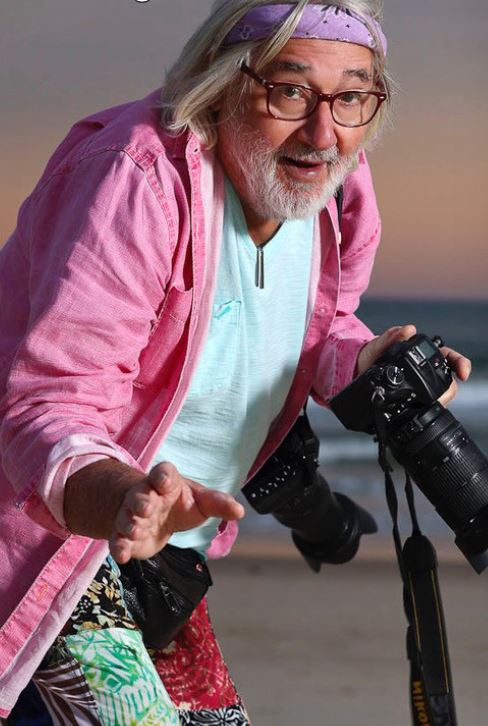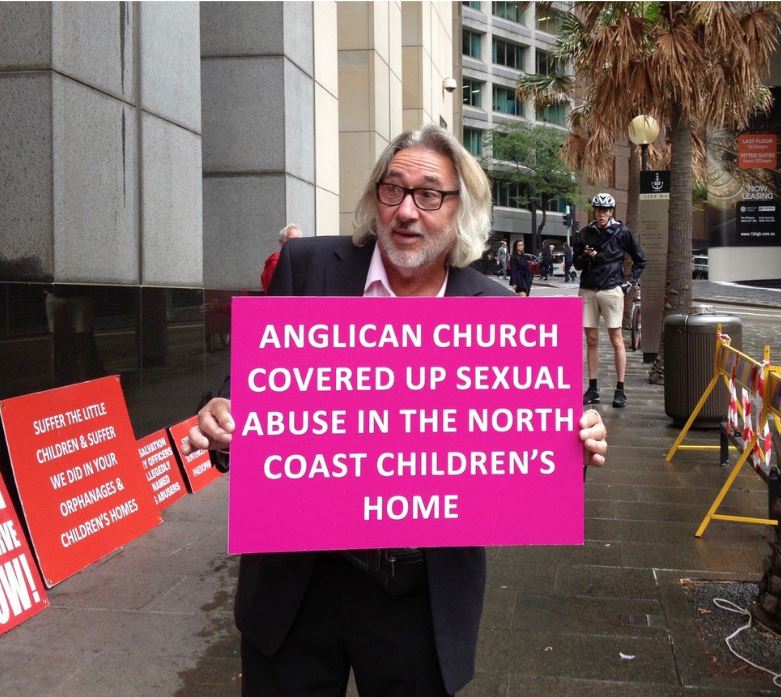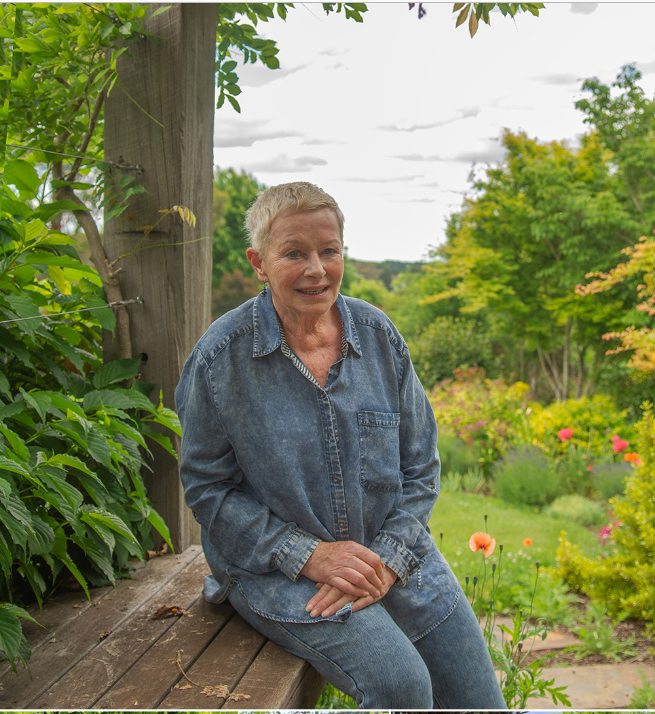November 21st, 2024Tommy’s amazing life

The scars are still there. Not only mentally from the cruel abuse Richard “Tommy” Campion and his sister suffered in a home after being abandoned when young but also on his back from beatings.
Their parents didn’t want them, he says. Their mother “caught a train to somewhere”. A couple of days later their father left them in a children’s home never to be seen again.
Somehow, Tommy emerged after 14 years to eventually carve out a career as an award-winning news photographer. Now he and his partner Marilyn have left the traffic, crime and high-rises of the Gold Coast for the tranquillity of Hepburn Springs.
But at 76 he continues a 20-year campaign to bring to justice those responsible for the whippings, bashings, floggings and starvation by staff at the Church of England North Coast Children’s Home in Lismore, NSW.
A brief reprieve did come when his sister Suzanne, who is two years older than him, was adopted by a family when aged eight, mainly he believes, to look after their seven children.
“I fretted and so I was sent to join her. That family reckoned I had been raised by animals, so a few weeks later I was sent back to the home and didn’t see my sister for eight years.
“When we did meet there was no heavy connection. We thought about each other, but the love was not there. She was far more emotional than me, yet later we came to love each other dearly.”
To him, what happened at the home was sexual, psychological and physical abuse. Anglican Ministers used leather belts on children who were cheeky, had not made their beds properly, or for stealing food to supplement the gruel.
Frightened, skinny, asthmatic and pigeon-chested, he was found a job in a hardware store at age 16. With the help of a matron, the home had “come good” the year before he left.
Now he was mixing paint, “a tough gig”, while paying board at the home. He laughs at the contradiction.
Next, he spotted a newspaper ad for a cadet photographer who “must be keen and outgoing”. He had probably only taken a couple of snaps in his life, so he borrowed some and, to his amazement, got the job.
Even then, he thought he was letting down those in the home because they had found him the hardware job.
Joining the Northern Star in Lismore aged 17 was exciting, even though it meant mixing chemicals, proofing and filing.
“I learnt more in a month than I had from age two to 16. I learnt how to talk to people, look them in the eye, react, be responsible.
“Somehow, I got ambition, yet I was nearly sacked so many times for not dressing properly. I couldn’t wear a tie because we were choked in the home. When I told the pictorial editor this after he retired, he cried.”
The new-found ambition had him trying for about seven months to join Queensland’s major paper, the Courier Mail.
“I was told I would never get a job there until someone died. And then someone did.”
He spreads his hands to show the width of the pages of this big broadsheet, excitedly telling of the arrows down the page showing where a car went off a cliff.
“I learnt a helluva lot. And I also had a job lined up at The Australian.”
In the then traditional way, he was interviewed in a pub by three photographers. Not only did he get this job but he worked for six other Murdoch papers while based in Brisbane.
“It was the bees’ knees…ever heard about knocking a bastard down and he gets up again?”
These were amazing, thrilling newspaper days, which for him included getting grabbed by security when he got too close to the future King Charles at a media scrum.
“I was so pleased to go to work. I hated taking holidays. Crimes, pop stars, The Beatles, Joe Cocker, Johnny Cash, movie stars such as Sammy Davis Jr and Frank Sinatra, important news events I shot them all, as well as an action shot of a dog chasing a cat.”
He turned down the offers of jobs in Sydney because he was married and had a daughter to care for. There are now two grandsons who shine at sport and music.
When he was able to leave Brisbane a freakish encounter stopped him. When he paused at traffic lights he was spotted by a sports editor who asked what he was up to.
This editor was scathing of Sydney and talked Tommy into working two days a week for the Gold Coast Bulletin, which led to five years in News Ltd’s bureau there covering murders, kidnappings, fashion, sport, social and huge court cases.
His national award for spot news came when, thanks to an alert reporter who spotted the dog squad, he zoomed in on one of three child kidnappers who firstly wanted a $1million ransom, halved that and reduced it to $250,000, but was then caught.
But a court story led to disaster. His photo of alleged prostitutes, some masked, supporting a charged nightclub owner outside a court, was not used. Tommy’s instructions to ignore a picture of three college girls going into the court, which was on the same roll of film he sent in, was disregarded. The newspaper mistakenly identified the girls as prostitutes.
Within two days he was gone. No one would talk to him. He was in despair. No newspaper would use him for a few years.
Much later, he was exonerated when found that the pictorial editor, who sacked him and ruined his career, had written the erring caption.
Tommy was reduced to living on handouts in a two-roomed house. The pain of abuse still hurt, so he wrote a five-page letter to the Royal Commission on Institutional Child Abuse, telling of the nightmares he suffered and wondering about the other children and how they were coping.
The response was an apology from a leading Minister who said that Tommy had “lived in an Anglican home which should have been safe, but clearly was not.”
Tommy adds: “I was believed and asked to fill out a form and would get $78,000 compensation.” He refused the offer because others had to know that they had the right to compensation if they had been abused.
Tommy put advertisements in 20 papers asking for anyone who lived in the home to get in touch. His phone rang off the hook.
“The church then began fighting back and the fight went on and on, causing abuse again.”
So powerful is the church, he said, that only the Royal Commission was able to order proper compensation.
He began to cry as he told of giving evidence for most of a day of the three-week hearing.
“The church lied, even at the Royal Commission.” He does not hold back. “They are a sneaky, nasty, hypocritical pack of bastards.”
In an effort to have the Bishop who was in charge defrocked he has written hundreds of letters, becoming an advocate for about 70 people.
“I got a Bishop and a Minister kicked out of the church, but they were still able to call themselves Bishop and Reverend.
They were not involved in the abuse but in the cover-up and failed to act within church rules.
“If the church had been like a church and said sorry and acted it would have been different. They wouldn’t have ended up in the Royal Commission.”
And there may not have been the deaths, jail terms and the like for those from the home.

Although embarrassed, he stood for two days outside the Anglican church in Brisbane with a protest sign, denouncing the abuse and failure of duty of care, while copping abuse from some passers-by.
After waiting six years he got in to see the leader of the Anglican Church of Australia six times. His letter writing campaign continues, and so does his photography, now with gentler pictures, such as kangaroos nearby, interesting people and serene scenes.
He and Marilyn share their house with their two cats, Garry Barry and Alice.
“As soon as I walked into the house here, I knew this was home.”
Words: Kevin Childs | Image: Contributed










